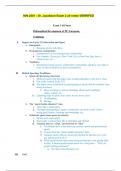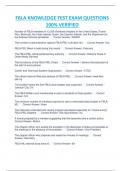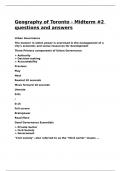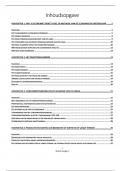Lecture notes
Law of Succession and Trusts - Lecture 5 - Legacies
- Institution
- Edinburgh Napier University (ENU)
Class notes from fifth lecture of the module Law of Succession and Trusts. Lecture covers legacies of succession in Scots law. Important notes are highlighted, and case descriptions are given. Author achieved first-class grade for the module.
[Show more]












